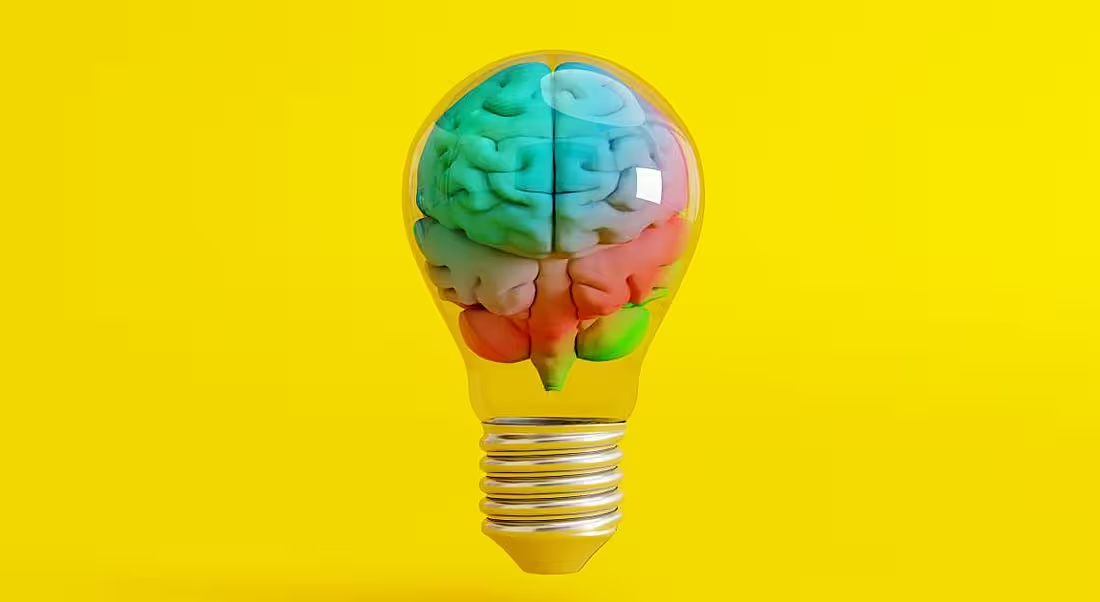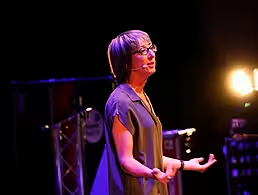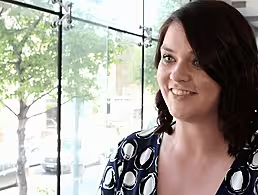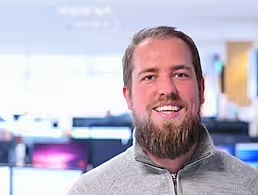Fintech project leader Rhealyn Mugri told Siliconrepublic.com why soft skills will be critical in separating us from our robot colleagues.
Rhealyn Mugri, a project leader at Fiserv (formerly First Data), is set to appear on stage at Comtrade’s Quest for Quality event in Dublin.
The two-day software QA and testing conference is taking place on 5 and 6 November. This year’s instalment will focus on the intersection of AI and quality assurance, and tickets are still available.
Ahead of her keynote appearance at the event, she explored with us the benefits of embracing change as we get closer to the future of work, and why that cultural shift needs to start now.
‘Companies, I think, will need to be more human than ever to attract the best talent’
– RHEALYN MUGRI
What are the major challenges and opportunities facing the workplace and workforce of the future?
I do believe that real leadership will be tested in the workplace of the future.
As I see it, the workforce will massively change. Humans will be working alongside robots. Artificial intelligence will be the key to precise and accurate work, saving a lot of time and money for industries. Yet, more than ever, top management will have to up their skills in the field of emotional intelligence to fill in for what robots and AI may lack.
I think that the huge challenge will be for leaders to keep up with human employment and AI deployment together.
I do believe that AI is the engine that eliminates such repetitive tasks in the workplace as we are witnessing today. Emotional intelligence, though, is the power that will lead the workforce of the future – a workforce made of humans, machines, robots and AI.
What part will diversity and inclusion play in the make-up of the workforce of the future?
I believe that the workforce of the future will be global and will be leaning towards the so-called gig economy. This means workforces will be made up of talented people working from the comfort of their chosen location, on whichever side of the world they live in.
This is where real inclusion and diversity can shine. People who were unable to travel or work in an office previously will have a huge chance of employment in the workforce of the future. Those who were previously limited in getting to work due to childcare issues and other family-related challenges will get the chance to be part of the new workforce.
The workforce of the future will also mean unlimited opportunities for employers to tap into talents they require for a specific project at a given time.
We are living in the ‘always connected’ world. This means that businesses can have projects being worked on across the globe at all times.
Work-life balance is arguably central to job satisfaction. Will the future of work help achieve it?
The future of work may or may not help achieve work-life balance.
As we have already become an ‘always connected’ society, I believe that there is a chance that work-life balance may be impossible to achieve. It is a matter of really understanding priorities in life. The great benefit I see that the future of work will really provide is flexibility.
However, flexibility does not always mean work-life balance.
We’ve already seen immense increases in salary, particularly in tech. Do you think the future of work will make way for other types of benefits?
For now, immense increases in salary are inviting for tech talent, with all work packages competing at the door. The reason being, I think, is that companies are realising the need to embrace AI and automation for businesses, and the way to do so is getting the human resources required for AI deployment.
I believe the future of work is being built today by the in-demand tech resources. Once the foundation is laid well, things can be different. For certain, there will be jobs that will become obsolete.
There will be new jobs which will be required as a result of what we have built for the future. These will be the jobs which will make way for other types of work benefits, such as, perhaps, extended paid leave and paid holiday trips. The additional benefits, I think, will be focused more on mental wellbeing of human resources, as employers will greatly appreciate the productivity of a well-rested, talented mind.
Rhealyn Mugri, Fintech project leader at Fiserv. Image: Rhealyn Mugri
We’re looking at a more automated future, as AI and robots become more sophisticated. How do you think this will affect roles in your sector?
An automated future means automated life. I have no doubt that it will affect various roles in financial technology or any other areas. I am convinced it will cause some jobs to be made redundant and some new jobs to be created.
Jobs which could be considered obsolete are those which have higher probability of automation, such as accountants, bookkeepers and customer service agents, or roles which follow logical and repetitive steps.
What new jobs do you think will come to the fore?
I think that, more than ever, the future of work will require more human soft skills which the AI, robots and machines cannot fully acquire.
Emotional intelligence will be the driver of the workforce of tomorrow. Robots will be the readers of data, the archivists of vast amounts of historical information, and the source of complex mathematical equations and solutions. Emotional intelligence will be our strength, as humans, in still leading the human race and machines.
This also means that new jobs created will require not just coding or data analysis skills, but also numerous soft skills which AI can’t afford.
What will companies need to do to attract and support the best talent?
Companies, I think, will need to be more human than ever to attract the best talent.
This won’t just be increasing the figure of a salary offer, but also providing a winning culture for individuals who can grow and develop themselves with greater flexibility and real work balance.
In your opinion, what can companies do today to prepare for the work of tomorrow?
Preparing for the work of the future, I think, should start now. Before any implementation of AI, automation and robots in the workplace, I believe organisations must first assess their readiness. This is what I like to call a ‘readiness plan’. I think organisations should really take time and make an effort to build their readiness plans.
Before anything else happens, I believe it is crucial to check how prepared the organisation is for change. It is crucial to assess the readiness of people, culture, management, infrastructure and, most importantly, customers.
Change is a challenge. It can make or break a company.




